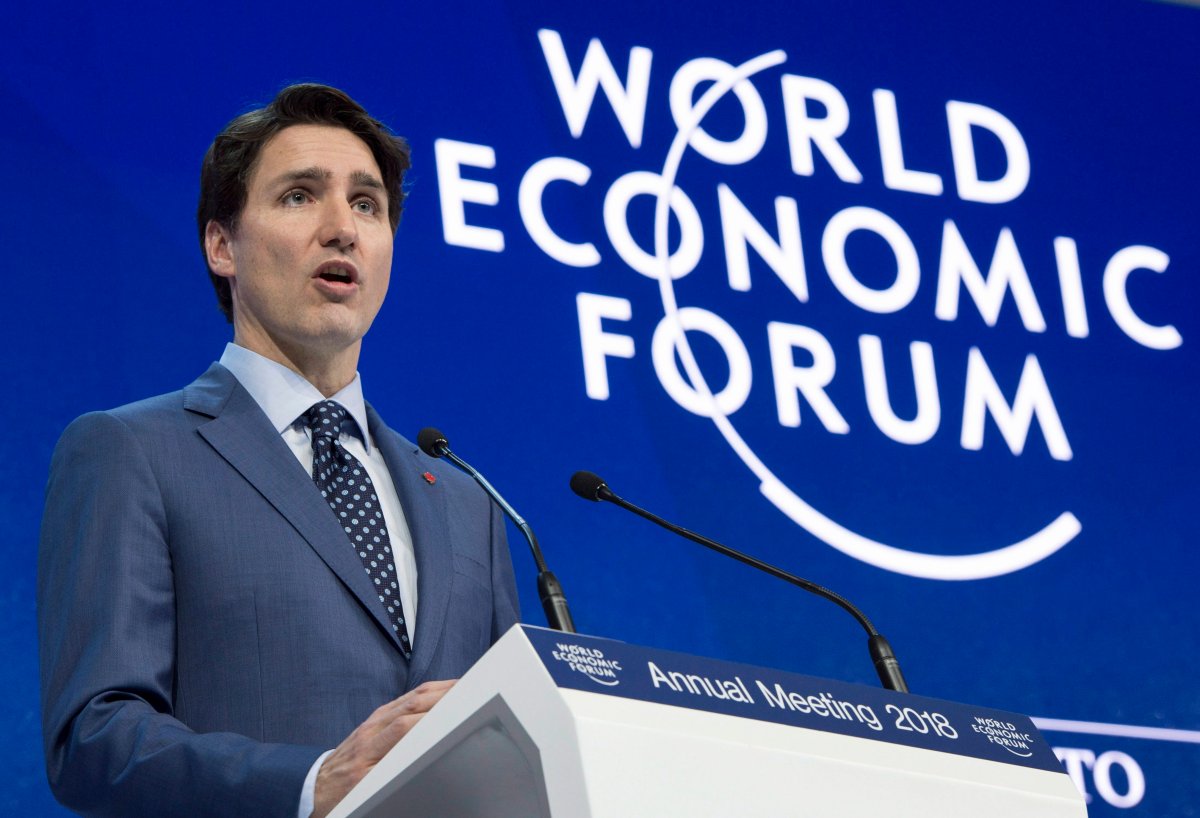As someone who has criticized Prime Minister Justin Trudeau for his approach to negotiating trade deals, and who even questioned his commitment to free trade, it is only fair that I give the man credit for what he managed to accomplish this week.

With the World Economic Forum in Davos as the backdrop, Trudeau announced Monday that Canada had reached an agreement on joining the 11-member Trans-Pacific Partnership (TPP). This is excellent news for Canada and a political victory for the prime minister, who had appeared to be a source of irritation to the other TPP member nations and who, frankly, never seemed all that enthusiastic about the TPP to begin with.
Not only did Trudeau not bungle the deal, it appears he was able to win some concessions — although it’s still unclear how significant those concessions are. This new TPP may be for all intents and purposes the same as the deal that was negotiated under the previous Conservative government. For now, though, Trudeau can claim it as his own.
In truth, whether it was the TPP of 2015 (which counted 12 nations, including the United States) or the TPP of 2018 (the original nations minus the U.S., for now), Canada is far better off being in than being out. It’s encouraging to see the emergence of a bipartisan consensus on this point (the NDP remain firmly opposed to the TPP).
Both the TPP and Canada-European Union Comprehensive Economic and Trade Agreement (CETA) trade deals were negotiated under the Harper government and concluded under the Trudeau government. It’s reminiscent of the corporate tax cuts that began under the Liberals, were continued by the Conservatives, and left in place by the current Liberal government — another bipartisan policy initiative that has been quite beneficial to the Canadian economy.
First and foremost, this is tremendous news for consumers, i.e. Canadian taxpayers. We tend to think of tariffs as the last line of protectionist defence against advancing hordes of foreign economic interests, but we’d be better off thinking of them as taxes. Reduced taxes (tariffs) means money in the pockets of Canadian consumers, perhaps as much as $600-million as a result of the new TPP.
WATCH BELOW: Trump signals interest in trade deals with TPP partners

More broadly, however, the evidence is pretty clear about the economic gains to be realized from lowering tariffs. Any trade deal that takes us in that direction is a positive step, and that’s certainly the case here.
Moreover, reduced tariffs and trade barriers in the 10 other TPP nations means greater export opportunities for Canadian businesses — or at least those with the confidence to compete in the global marketplace. In the agricultural sector, for example, beef, pork, and grain producers are all celebrating this deal and the new markets it will open for them.
By contrast, however, the dairy industry — which has long enjoyed special protection under Canada’s system of supply management — is denouncing the deal, despite the fact that those protections remain largely in place. Perhaps someday Canada’s dairy industry will learn from their counterparts in other TPP nations on how to evolve, grow, and compete internationally.
The auto sector, another industry that has benefited from the assistance and protection of Canadian governments, is also upset about the deal. Even if we concede that the auto sector may suffer under this deal, losses in one industry should not cancel out the wins in other industries. However, there’s good reason to believe that these fears are overblown, and that the TPP could benefit Canada’s auto sector.
In fact, having the U.S. out of the TPP creates a unique opportunity for Canada. If we can maintain special access to the U.S. economy through NAFTA that other TPP nations don’t enjoy, that could lead to significant additional investment in Canada’s auto sector from Japanese automakers. All the more reason to fight for free trade here in North America.
The Trudeau government may yet bungle NAFTA and/or miss out on a trade deal with China. But between the new TPP and the trade deal with Europe, we’ve made significant steps in the right direction.
Rob Breakenridge is host of “Afternoons with Rob Breakenridge” on Global News Radio 770 Calgary and a commentator for Global News.




Comments